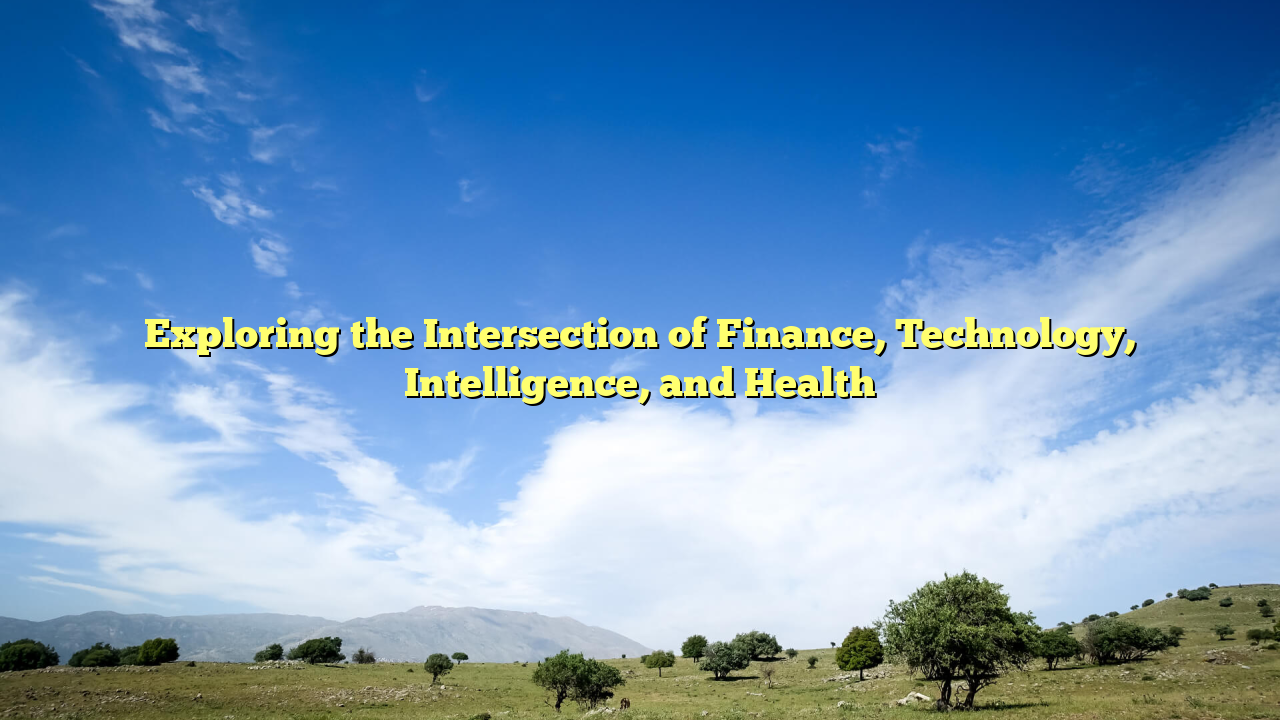In today’s rapidly evolving world, the intersection of finance, technological innovation, artificial intelligence, and healthcare is revolutionizing how we live. These sectors, once seen as separate, are now interdependent, creating new challenges for individuals, businesses, and governments alike.
Finance in the Digital Age
Finance has undergone a radical transformation due to advancements in technology. Traditional banking systems are now being replaced by digital banking.
naik139 like Apple Pay are emerging as mainstream payment options, reducing the need for physical currency. Additionally, the emergence of decentralized currencies such as Ethereum has opened new frontiers for investment and trade.
Blockchain-based contracts, powered by blockchain, are changing the way we handle transactions. These contracts execute automatically once conditions are met, minimizing the need for third parties.
Bridging the Gap Between Technology and Wellbeing
Technology is not only innovating the financial landscape but also advancing the healthcare sector. Through IoT-powered health tools like health trackers, individuals can now track their sleep patterns in real time.
Online medical consultations has become widely accepted, especially after the COVID-19 pandemic. Patients can consult with doctors without having to visit hospitals physically, thus saving time and reducing exposure.
On the financial side, technology has also enabled instant financial insights. Robo-advisors offer tailored investment strategies based on individual risk profiles.
Intelligence at the Core: AI and Machine Learning
Machine Learning (ML) is at the heart of this transformation. In banking, AI is used to analyze spending behavior with unparalleled accuracy.
For instance, credit scoring models that once relied on basic metrics now use AI to assess a person’s creditworthiness using dynamic data sources. This ensures more fair lending practices.
In medicine, AI is fueling medical diagnostics. Tools like Google Health AI can process vast amounts of medical data to suggest treatments faster than any human doctor.
The Quantified Self Movement
Information is the new oil in today’s world. Through wearables, individuals can optimize their health metrics to prevent diseases rather than treat them.
Apps like MyFitnessPal encourage healthier living through diet tracking. These technologies also sync with insurance companies to offer discounts for healthier lifestyles, linking financial benefits directly to well-being.
Digital medical records ensure seamless communication between doctors, specialists, and patients. This not only improves the accuracy of diagnosis but also reduces the chances of medical errors.
The Dark Side of Integration
Despite the advantages, the fusion of these fields also brings risks. Privacy issues are becoming more common as sensitive data is stored online.
AI bias in both financial lending and healthcare recommendations can lead to social injustice. It’s crucial that AI models are trained on diverse datasets.
Furthermore, the access gap means that not everyone can benefit from these advancements. Policies must ensure that rural populations are not left behind.
Moving Forward
Looking to the future, the fusion of finance, technology, intelligence, and health will continue to expand. Quantum computing may enable new forms of decentralized healthcare.
Governments and corporations will need to collaborate on frameworks to ensure ethical use of these technologies. Education and digital literacy will also play a key role in helping the population adapt to these changes.
To sum up, the blend of finance, tech, AI, and health is not just a trend—it’s the foundation of our future. Those who understand and embrace this evolution will be better prepared for the opportunities ahead.
